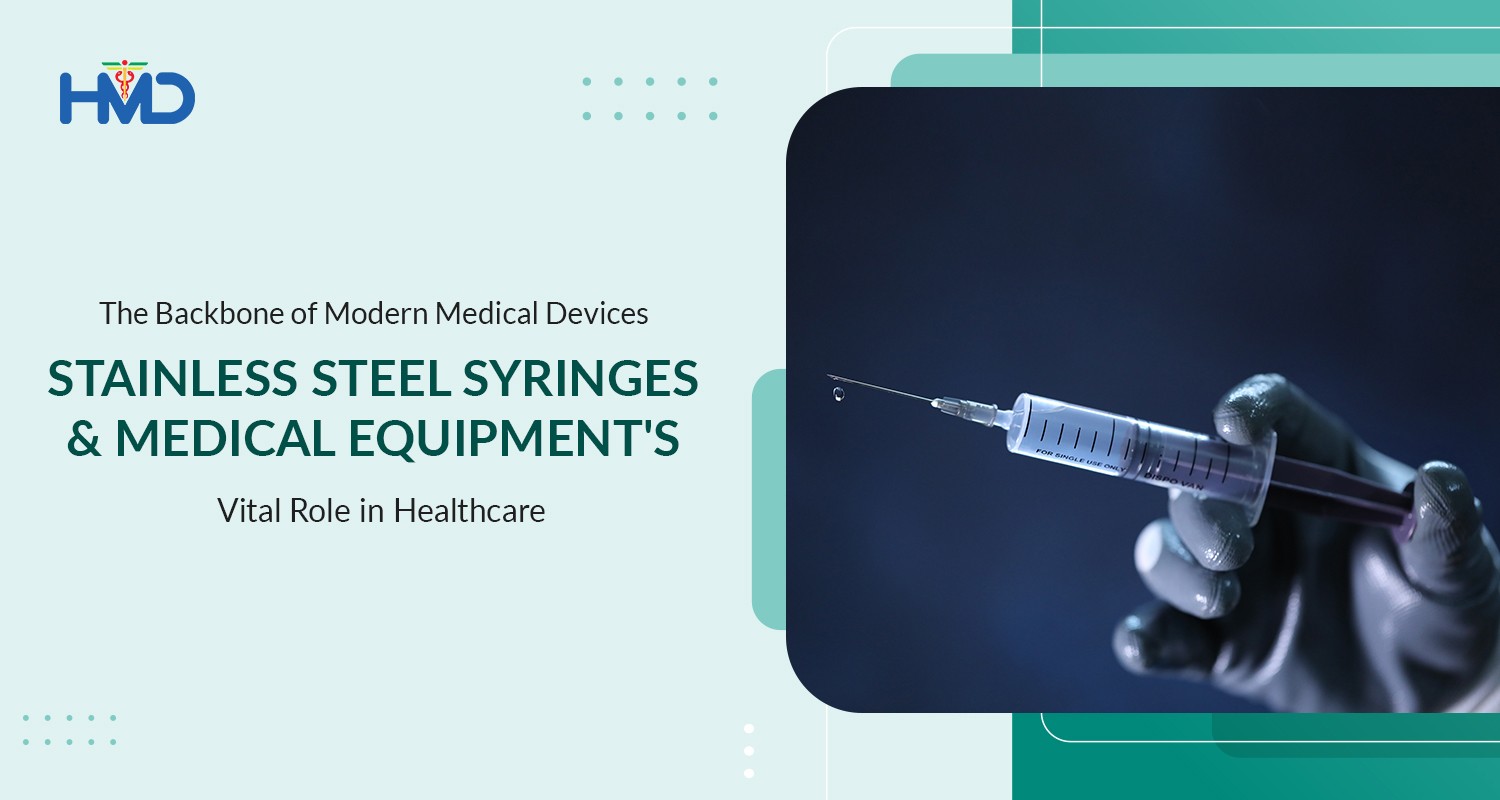

The healthcare sector is committed to delivering exceptional patient care by relying on skilled health care professionals and utilising advanced medical equipment. Safety and hygiene are key considerations when selecting medical equipment for healthcare facilities. Medical devices come into direct contact with patients, making it essential to use materials that prioritise cleanliness and minimise the risk of bacterial and germ transmission.
Due to its valuable properties, stainless steel has garnered widespread recognition as the ideal material for manufacturing medical equipment. This blog explores the remarkable benefits of stainless steel medical equipment in healthcare.
Common Applications of Stainless Steel in Healthcare
Here are some common applications of stainless steel in healthcare facilities:
- Surgical Equipment: Surgical blades, forceps, scissors and clamps.
- Medical Devices: Orthopaedic implants, stents, catheters, pacemakers, and prosthetics.
- Hospital Furniture: Examination tables, surgical carts, instrument trays, and I.V. stands.
- Machinery: CNC Machines.
- Medical needles, syringes and cannulas.
- Hospital Infrastructure: Sinks, basins and cabinets.
Benefits Of Using Stainless Steel Devices in Medical Facilities
Various benefits are associated with using stainless steel equipment in a medical facility. Some of these benefits are stated below:
Corrosion Resistance: Rust on equipment poses significant patient risks, as even minor infections can lead to severe medical complications. Stainless steel, renowned for its remarkable resistance to rust, proves invaluable even in the most demanding and corrosive environments of medical facilities.
Fire & Heat Resistance: In medical facilities, devices and equipment that can withstand high temperatures and resist fire hazards are highly important. Stainless steel emerges as the ideal solution, offering vital protection that mitigates the risk of fires caused by device malfunctions. By providing this additional safeguard, stainless steel prioritises the safety of both patients and staff.
Ease Of Sanitisation: In healthcare facilities, cleanliness is crucial to prevent the spread of infections. The ease of cleaning and disinfecting stainless steel reduces the risk of disease transmission. Its low maintenance requirements save time and money for the facility.
Durability: Medical devices crafted from stainless steel exhibit exceptional resilience, enabling them to endure rigorous usage with minimal risk of damage or breakage. This outstanding durability guarantees that the equipment maintains its prime condition over an extended period, effectively extending its lifespan.
Unfavourable Environment for Germs: The non-porous characteristic of stainless steel renders it a tough barrier against germs, bacteria, viruses, and other harmful organisms. Unlike porous surfaces, stainless steel effectively prevents the spread of these organisms as long as it is properly cleaned and sanitised.
Conclusion
Stainless steel equipment is an excellent choice for sustainable healthcare practices, offering durability, cost-effectiveness, and positive environmental impact.
At HMD Healthcare, we are committed to providing premium-quality solutions tailored to your requirements. Our dedication extends to meet your specific needs, whether it involves precision manufacturing or identifying the ideal material for any application. Explore our comprehensive range of medical devices, including needles and scalpels, meticulously crafted from premium-grade steel and subjected to rigorous testing, ensuring the safety of patients and healthcare professionals alike. For more information, please visit our website.

